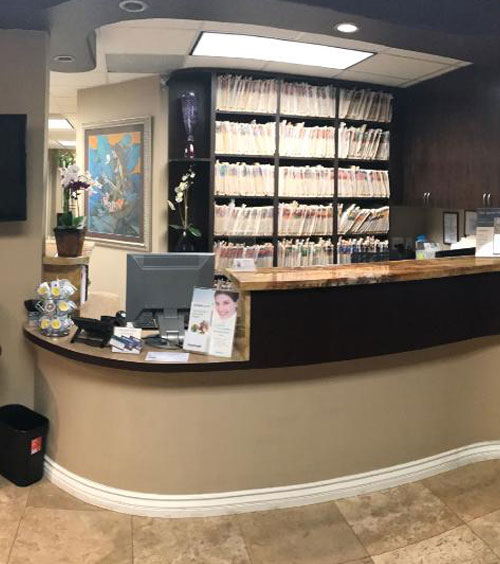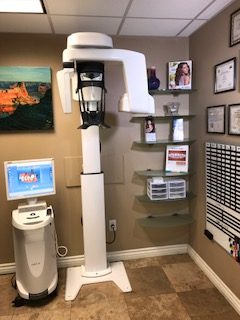Bleeding Gums and Chronic Halitosis Are Not Normal
Periodontal, or gum, disease is the leading cause of tooth loss in adults in the developed world. The first sign of periodontal disease is gingivitis – a buildup of plaque in one’s teeth and subsequent release of toxins that irritate and inflame the gum tissue. If left untreated, gingivitis can lead to gum and bone tissue deterioration and tooth loss.
Common types of periodontal disease include chronic, aggressive, necrotizing, and gum disease associated with systemic diseases – each with its own symptoms and distinct characteristics. No matter which type of gum disease you are dealing with, you should always seek out prompt treatment from a qualified periodontist to stop bone, tissue and tooth loss from progressing.
Periodontal disease can advance without clear warning signs, such as gum pain or inflammation. Regular dental exams are critical in order to detect cases of perodontitis even if warning signs may not be evident.
Dr. Akef Can Help You With Your Gum Disease
Can't Call Us Now?
Complete the form below and a member of our team will contact you at a more convenient time!
Here are a few signs and symptoms of periodontal disease:
Bleeding
– If you experience unexplained bleeding of the gums when you brush your teeth, floss or eat food, a periodontal infection may be the cause. The toxins released from plaque cause the bacterial infection, or gingivitis, and make the supporting tissues more prone to bleeding.
Pain, redness or swelling
– A periodontal infection may be the cause of swollen, red or painful gums. Contact your dentist if you experience any of these symptoms in order to detect gum disease or infection early and halt its progression before it affects gum tissue, your jaw bone, or is transmitted to other areas of the body.
Elongated teeth
– Gum recession – a common result of periodontal disease – can make one’s teeth appear to “grow” or become longer. Because the bacterial toxins caused by plaque buildup destroy the supporting tissue and bone, a common symptom of periodontal disease is the appearance of elongated teeth from receding gums.
Bad breath
– Halitosis, or bad breath odor, often originates from food consumption or tobacco use. Bad breath is caused by old food particles that are stuck between the teeth and the gum line, so when these gum pockets are very deep, they can house more food particles and debris, which causes bad breath.
Loose teeth or shift in bite pattern
– Loose or shifting teeth is often caused by the destruction of bone and supportive gum tissue and is a common sign of periodontitis. As the tissue deteriorates, teeth become more loosely attached to the jawbone and may fall out or shift.
Pus
– Pus is the result of one’s body fighting bacterial infection, so if pus is evident between the teeth, a periodontal infection is already in progress.
If you notice any of the signs or symptoms that are commonly associated with periodontal disease, don’t wait to contact Dr. Jay Akef, periodontist in San Diego today. At San Diego Dental Implants & Periodontics, we are happy to answer any questions you may have about the disease and explore the best treatment options for you.








